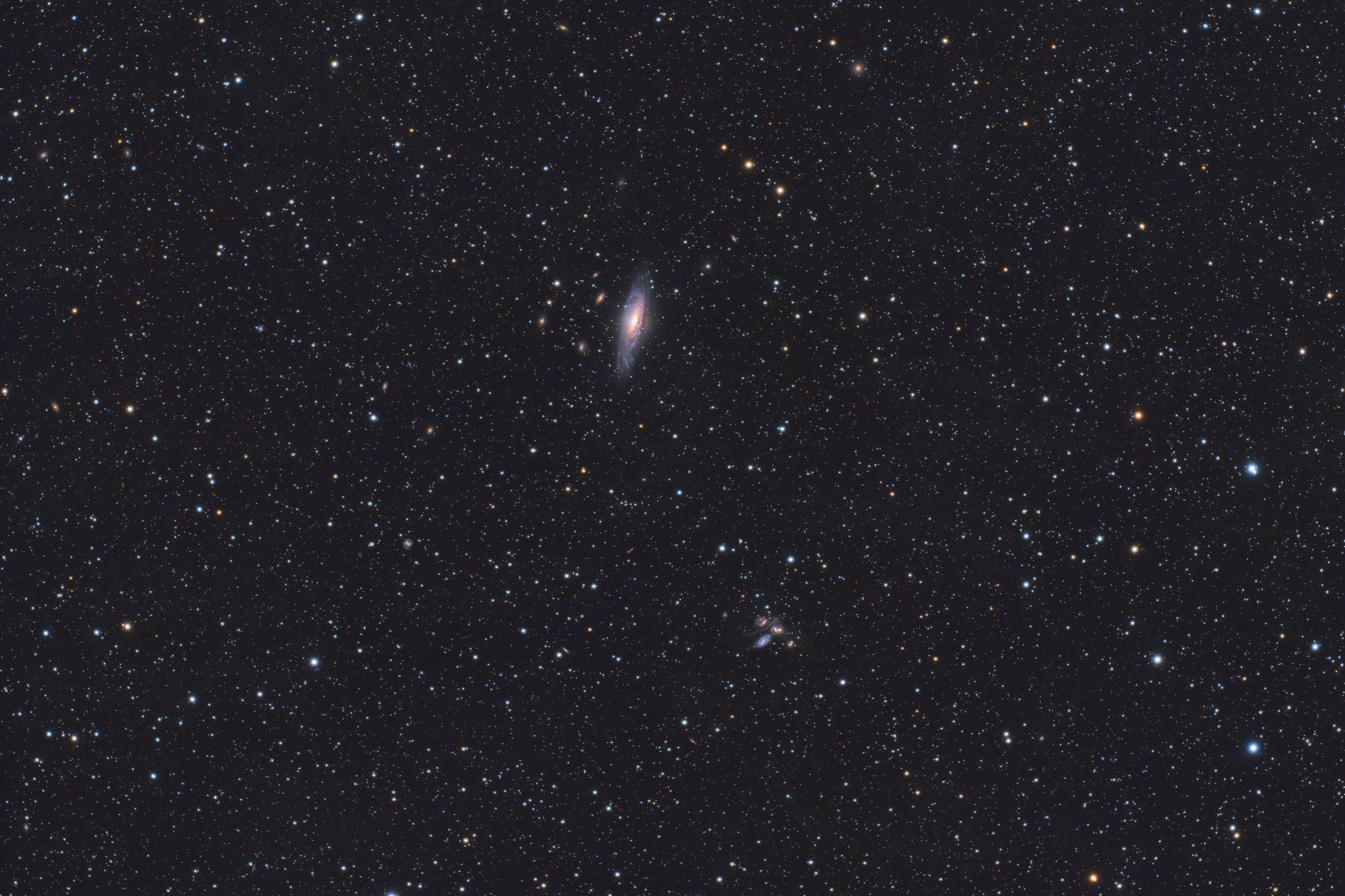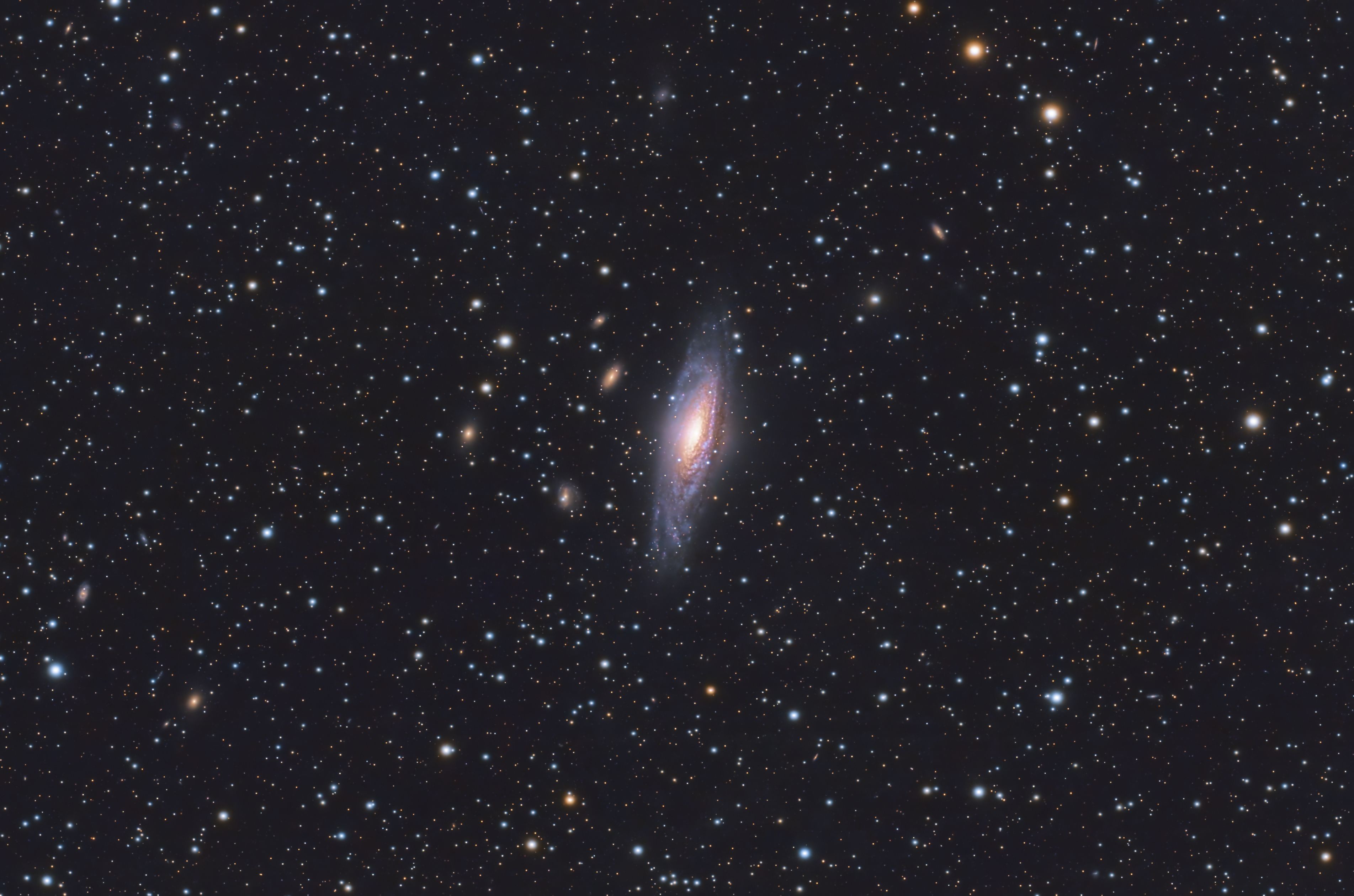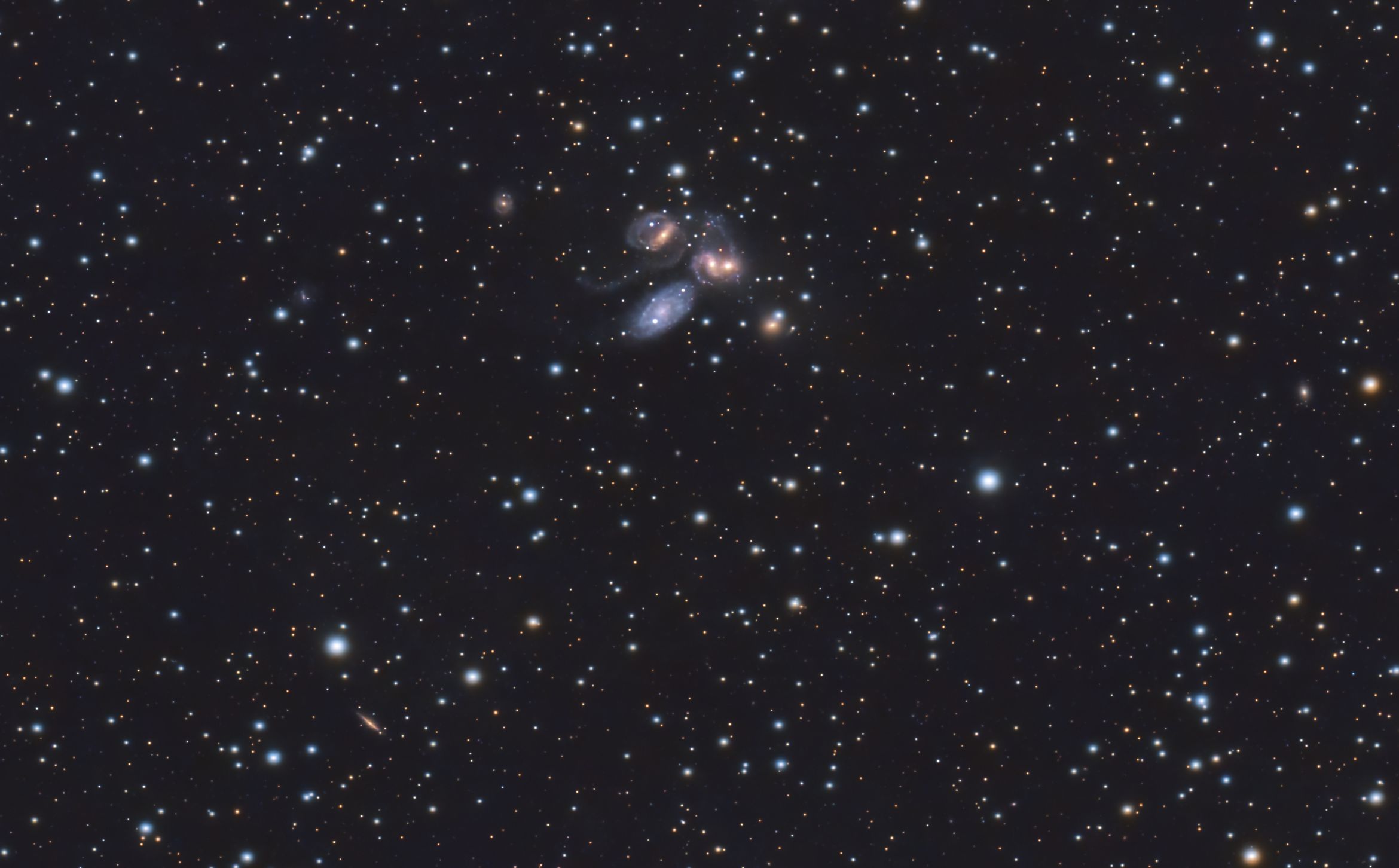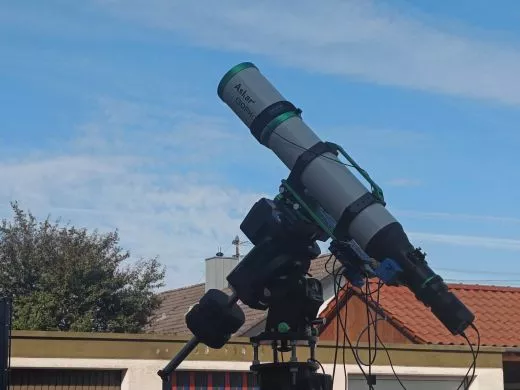- Details
Produktbeschreibung
Erfahrungsbericht Askar 130PHQ
Askar hat mit dem 130PHQ die Serie konsequent fortgesetzt und einen weiteren, hervorragenden Flatfield Astrographen auf den Markt gebracht.
Wie auch die kleineren Modelle bringt der Askar 130PHQ ein bereits für die Astrofotografie korrigiertes Bildfeld bis Sensoren von 60mm Diagonale mit sich. Damit kann der 130PHQ ein bis weit über Vollformat-Sensoren hinaus korrigiertes Bildfeld liefern.
Für die entsprechende Adaption verschiedener Gewinde ist ab Werk gesorgt, Kameras und dedizierte Astrokameras lassen sich direkt über z.B. gängige M54 und M48 Gewinde adaptieren.
Dabei ist kein definierter Abstand einzuhalten. Sobald man mit der verwendeten Kamera in den Fokus kommt, ist das Bildfeld dank des fest verbauten Flattener bereits korrigiert.
Selbst beim Einbringen eines zusätzlichen Filters oder sonstigen optisch wirksamen Elementen, muss kein Abstand korrigiert werden, lediglich der Fokus muss neu eingestellt werden.
Die PHQ Serie richtet sich damit direkt an die Astrofotografen unter den Sternfreunden, bringt aber auch alle nötigen Voraussetzungen für die die visuelle Beobachtung mit sich.
Mit einem Öffnungsverhältnis von f7.7 bei einer Brennweite von 1000mm ist der Askar 130PHQ besonders für die Fotografie von Galaxien oder kleineren Objekten, wie Planetarische Nebel auch an kleineren Sensoren geeignet, um auch feine Details darstellen zu können.
Der optionale x0.7 Reducer verkürzt die Brennweite auf 700mm bei einem Öffnungsverhältnis von ca. f5.4. Somit wird aus dem Galaxienjäger auch das Fotografieren von z.B. ausgedehnteren Nebeln möglich. Das Bildfeld bleibt dabei bis Vollformat-Sensoren korrigiert, allerdings gilt es einen fest definierter Abstand zum Reducer einzuhalten. Die nötigen Abstände zu den jeweiligen Gewinden entnehmen Sie bitte den Bildern in der Artikelbeschreibung.
Link zu den Produkten:
Askar 130PHQ 130mm F/7.7 Quadruplet Flatfield Super APO Astrograph Refraktor
Askar 0,7x Reducer für 107PHQ und 130PHQ
Unser Sternfreund Markus Wirth hat uns eine seiner Aufnahmen und Detailansichten dazu zu Verfügung gestellt.
Verwendete Ausrüstung:
Askar 130PHQ
Toutpek SkyEye62AC (IMX455 Volformat- / Farbsensor)
Skywatcher EQ8-R Pro
Stromversorgung und Fokuser:
PegasusAstro Powerbox Ultimate V2
PegasusAstro FocusCube
NGC 7331 / Stephans Quintett


Diesen Artikel haben wir am 05.01.2023 in unseren Katalog aufgenommen.
Profitieren Sie von unseren Erfahrungen als Teleskop-Spezialisten:
denn sehen heißt verstehen
in besonderen Fällen auch Vor-Ort-Service im Raum München


